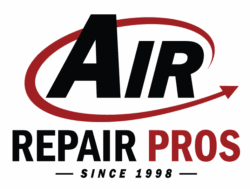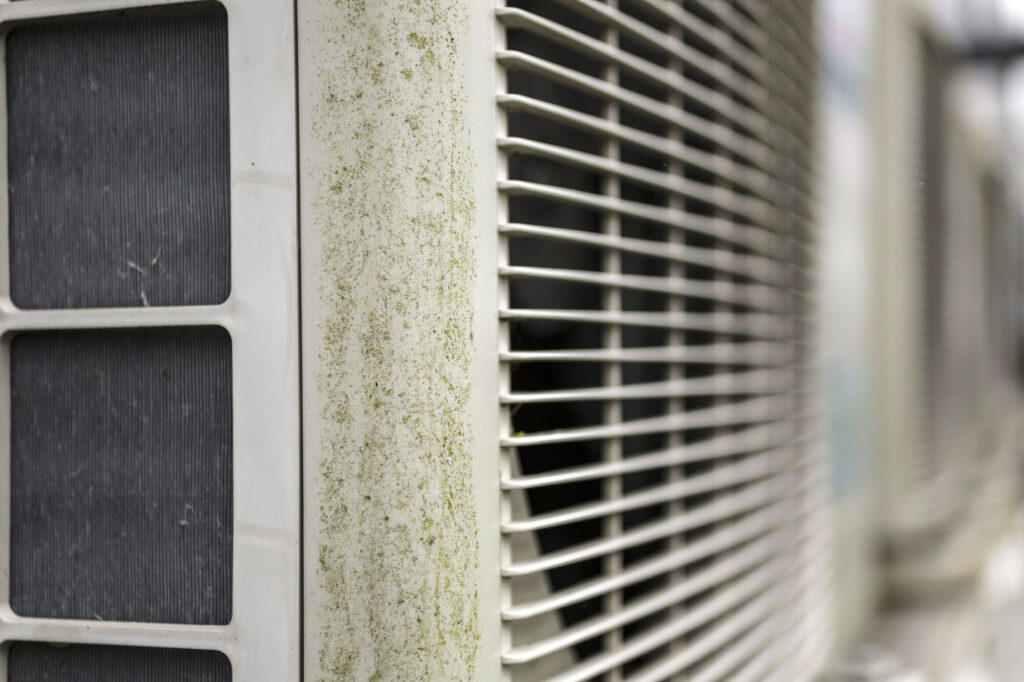The dreadful time for an AC to stop working is usually during the summer. Imagine the summer in Frisco, North Dallas, and your AC refuses to make your home cool. Not an ideal situation, right? However, the unit never stops working all of a sudden, but shows some warning signs of AC failure before it gets completely off. If you know the signs, you can act before a small issue turns into an expensive breakdown.
AC units face different challenges depending on where you live. In a hot and humid region like North Dallas, many residents observed that systems were working harder to handle the heavy moisture in the air. But other than moisture, what are the signs leading an HVAC system to fail? Knowing them will help you take proactive steps and make your system efficient again.
Major Signs Of AC Failure and What To Do To Avoid Them
Your air conditioner rarely fails without warning. By recognizing all signs of AC trouble, you can fix those issues before they lead to complete system failure, saving you from discomfort and hefty, frequent repair expenses.
Here are the 10 most common warning signs that your air conditioner is heading for trouble, and more importantly, what you should do when you notice them.
Strange Noises You Can’t Ignore
An air conditioner in good shape makes a steady hum. If you start hearing banging, grinding, hissing, or clicking, it’s your unit telling you something’s wrong.
- Banging or clanking often points to loose or broken parts.
- Grinding suggests the motor bearings or fan blades are wearing out.
- Hissing may mean a refrigerant leak.
- Excessive clicking could signal electrical issues.
What to do: Turn the unit off if the sound is loud or sudden. Sometimes tightening panels helps, but repeated or sharp noises require a professional checkup.
Weak or Uneven Airflow
If cool air feels weaker than before or if some rooms get airflow while others don’t, your AC is struggling. This problem is often caused by dirty filters, blocked vents, duct leaks, or a failing blower motor.
What to do: Replace dirty filters and clear any blocked vents. If that doesn’t fix it, you’ll need a technician to inspect the ducts or the blower.
Warm Air Instead of Cool
One of the most obvious red flags is when the AC blows warm air. This usually happens due to low refrigerant, compressor failure, or frozen coils. Sometimes it’s as simple as thermostat mis-settings, but often it points to bigger trouble.
What to do: Double-check that your thermostat is on “cool” mode. If the outdoor unit isn’t running or warm air continues, call a professional immediately.
Constant On-and-Off Cycling
Short cycling means your AC keeps turning on and off without running long enough to cool properly. This strains the compressor and shortens the AC unit’s lifespan to a great extent.
Common causes: oversized units, electrical problems, refrigerant issues, or clogged filters.
What to do: Replace the air filter and make sure nothing is blocking the outdoor unit. If the problem continues, a technician needs to check the electrical and refrigerant levels.
Rising Energy Bills
If your electricity bills are climbing without you running the AC more often, your unit may be losing efficiency. A healthy system runs at steady costs. When parts wear down, the AC uses more power to do the same job.
What to do: Compare usage, not just the bill amount. If consumption has spiked, schedule maintenance to find out why.
Many homeowners in North Dallas note that sudden energy bill increase were their first clue that their AC was failing, long before it completely stopped working. Acting promptly is the only solution that saves you before your systems ask for complete replacement.
Water Leaks Around the Unit
Some condensation is normal, but pools of water near the indoor unit are not. Common culprits include clogged drain lines, damaged drain pans, or excessive condensation from low refrigerant. Leaks can also cause mold or damage your walls and flooring.
What to do: Try clearing the drain line with a wet/dry vacuum or vinegar flush. If leaks persist, contact the best air conditioning service for your North Dallas home and receive professional assistance.
- Odd Smells While Running
Unusual odors from your AC often point to specific problems:
- Musty or moldy smells = microbial growth inside ducts or coils
- Burning smells = electrical issues or overheating parts
- Chemical or sweet smells = refrigerant leaks
What to do: Shut down the unit if you smell burning. For musty odors, duct cleaning or coil inspection from AC repair services in North Dallas TX is best. Chemical smells mean you need immediate service.
An Aging Unit
Most residential AC systems last 10–15 years with good maintenance. If yours is past that point, expect more frequent issues and higher repair costs. Newer systems are not only more reliable but also more energy-efficient.
What to do: If your unit is 12–15 years old, start budgeting for a replacement before a total breakdown leaves you without cooling.
Uneven Cooling in Your Home
If one room feels perfect but another stays hot, your AC may not be distributing air correctly. Causes include duct leaks, poor sizing, zoning issues, or refrigerant loss.
What to do: Check vents and curtains in hot rooms first. If the issue persists, contact air conditioning services in North Dallas, TX, for a thorough ductwork inspection.
Ice on Your AC
Ice on coils or the outdoor unit is a serious sign. It’s usually caused by restricted airflow, dirty filters, or low refrigerant levels. Running the AC while iced up can damage the compressor, the costliest part to replace.
What to do: Turn off the system and let the ice melt. Replace the filter and restart. If ice forms again, call a certified technician.
How to Prevent AC Failure
Now that you know the warning signs, here’s how to keep your system from failing:
- Change filters regularly every 1–3 months.
- Schedule annual tune-ups to catch problems early.
- Clear debris and keep leaves and plants away from the outdoor unit.
- Inspect coils and clean condenser coils to prevent overheating.
- Check for water or refrigerant leaks before damage spreads.
- Keep vents open to reduce strain on the system.
- Don’t overwork your AC and give it breaks during extreme heat.
- Follow the 3-minute rule: Wait 3 minutes before restarting after shutting it off.
As HVAC techs often note, most breakdowns they see could have been prevented with simple filter changes and annual maintenance. So learn how to change filters or keep a professional team beside you to prevent such situations.
Final Thoughts
Your air conditioner doesn’t fail out of nowhere. There are numerous early warning signs of AC failure that you need to know. The best way to prevent AC failure is simple: regular maintenance, quick response to small issues, and annual professional tune-ups. So, the next time your AC acts up, don’t wait; take action before it’s too late.
Diagnose these warning signs with the Air Repair Pros Team. We have been proudly serving Frisco and surrounding communities since 1998, helping homeowners catch and fix early warning signs before they turn into major breakdowns. With fully stocked trucks, certified technicians, and 24/7 emergency service, our HVAC Service North Dallas is ready to handle all makes and models in one trip.
Call us at 469-523-0931 or schedule Air Repair Pros online to get a quote today and breathe easy knowing your AC is in expert hands.
FAQs
1. How often should I replace my AC filter?
Most homes need a new AC filter every 1–3 months. If you have pets, allergies, or live in a dusty area, change it more often. Clean filters keep airflow strong and prevent system strain.
2. Can a dirty thermostat cause AC problems?
Yes. If your thermostat is dirty, old, or placed in direct sunlight, it can give misleading readings. This may cause your AC to cycle incorrectly. Cleaning or upgrading to a smart thermostat often fixes the issue.
3. Why does my AC smell like rotten eggs?
That smell usually means a gas leak or a dead animal in your ductwork. It’s not safe to ignore. Turn off your system, leave the area if needed, and call a professional right away for inspection.
4. How do I know if my AC is the right size for my home?
If your AC runs constantly but never cools evenly or if it cycles on and off too quickly, it may be the wrong size. A licensed technician can do a load calculation to confirm the correct size.
5. Can closing vents in empty rooms save energy?
No. Closing vents increases pressure in your ducts and makes the system work harder, which can cause damage. A better solution is zoning systems or using smart thermostats to manage temperature in different areas.

